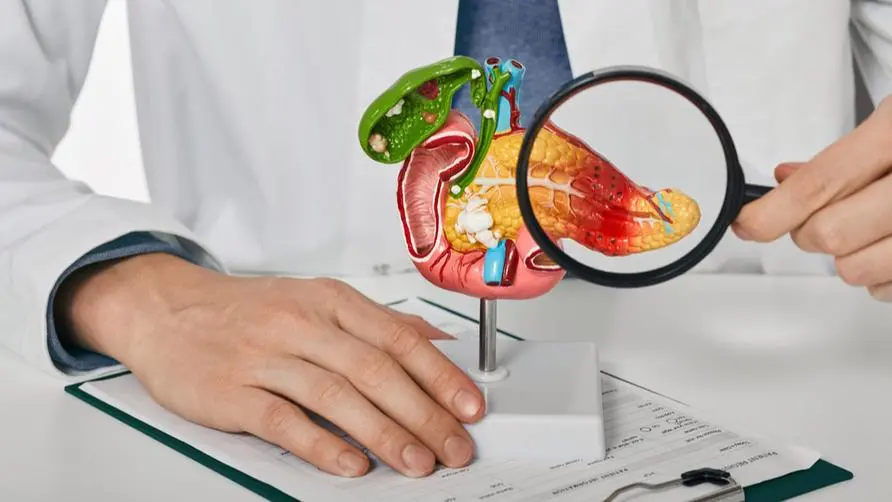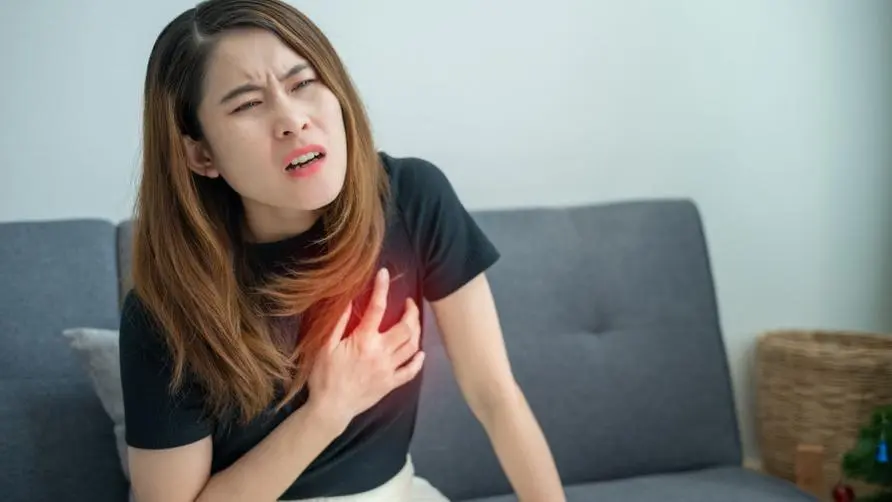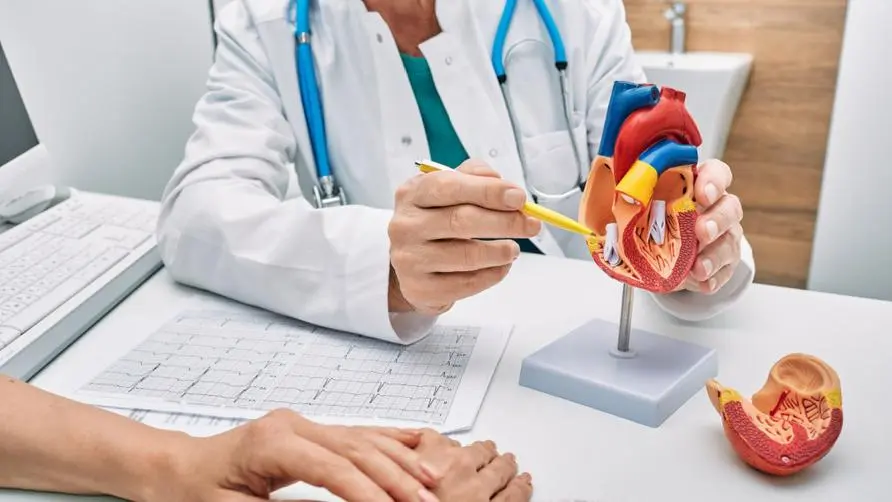Waking up with sudden pain while sleeping! "Cardiovascular spasm" is serious and may lead to sudden death. Doctor: "This test" is the only diagnostic method

The weather has turned cooler recently, and we have entered a period when cardiovascular diseases are more likely to occur. Dr. Hong Mingyou, a professor at Taipei Medical University and the Department of Cardiology at Taiwan Ministry of Health and Welfare Shuang Ho Hospital, said that a female patient with hyperthyroidism often felt chest tightness, palpitations, and even woken up by pain while sleeping, causing sleepless nights. The “cardiac catheter cardiovascular spasm induction test” was diagnosed as cardiovascular spasm. After taking medicine, the symptoms of night discomfort were finally relieved. Dr. Hong Mingyou said that cardiovascular spasm often occurs during rest or sleep. In addition to affecting sleep quality, it may also cause myocardial infarction and sudden death in severe cases. If you have symptoms such as chest tightness, chest pain or palpitations while resting or sleeping, be sure to seek medical attention as soon as possible.
Be careful if you have chest tightness while resting or sleeping! Doctors reveal the key to identifying “cardiovascular spasm”
Temperatures across Taiwan have dropped sharply recently, especially at night and early in the morning. Cold weather is more likely to induce “myocardial hypoxia”. Dr. Hong Mingyou said that there are two common mechanisms of myocardial hypoxia: one is supply hypoxia caused by insufficient blood supply during exercise; the other is demand hypoxia caused by cardiovascular spasm and other reasons during non-exercise. According to the International Journal of Medical Sciences (IJMS), up to 57% of patients with acute coronary heart disease in Taiwan suffer from cardiovascular spasm, which shows that cardiovascular spasm is highly correlated with myocardial hypoxia.
Cardiovascular spasm, commonly known as “cardiovascular cramps”, refers to the abnormal contraction of cardiovascular smooth muscles, causing all or part of the blood vessels to narrow, leading to sudden myocardial hypoxia in patients. Without prior prevention or timely administration of medication, it will cause angina pectoris or myocardial infarction. In severe cases, it may even lead to fainting, heart failure and sudden death. People should not be careful.
Dr. Hong Mingyou said that to identify cardiovascular spasm, you can start from two directions: First, the time point. The most common time points for cardiovascular spasm are rest and night sleep. This is one of the most obvious differences from other cardiovascular diseases. Furthermore, blood pressure and heartbeat are also important. Unlike the increased blood pressure and accelerated heartbeat caused by cardiovascular obstruction, when cardiovascular spasm occurs, the patient’s blood pressure is usually low and the heartbeat is slow. Therefore, if people are resting or sleeping If you feel the above symptoms, you should seek medical examination as soon as possible.
In addition, in addition to not causing paroxysmal supraventricular pulses, cardiovascular spasm can easily cause any other slow (common) or fast (less common) arrhythmia, the most common of which is premature ventricular contraction. Therefore, international scholars recommend including cardiovascular spasm in the differential diagnosis of arrhythmia or syncope. Studies have shown that cardiovascular spasm accounts for 40-50% of angina patients in Taiwan, Japan and Germany.
People over 40 years old should be careful! Young people who smoke and drink are at higher risk of cardiovascular spasms
Dr. Hong Mingyou pointed out that the age group that is most susceptible to cardiovascular spasms is between 40 and 70 years old, and the age group is relatively low. Among them, smoking, drinking, taking stimulant drugs, or hyperthyroidism will increase the risk of cardiovascular spasms. Studies have also shown that smoking, age and C-reactive protein are important risk factors. Current evidence shows that cardiovascular spasm is a precursor to cardiovascular obstruction and diabetes, and early detection can prevent cardiovascular obstruction.
In clinical treatment, oral calcium antagonists or oral nitroglycerin are often used as timely treatment to relieve cardiovascular spasm by inhibiting the contraction of cardiovascular smooth muscles. Hong Mingyou also reminded that there are many causes of cardiovascular spasm. Avoiding smoking, staying up late, anxiety, depression, keeping warm, and maintaining good living habits are still the best ways to stay away from cardiovascular spasm.
Are there many side effects of cardiovascular spasm-induced examination? Doctors: Wrong myths may lead to delays in seeking medical treatment!
The causes of cardiovascular spasm are variable and the symptoms differ from those of cardiovascular obstruction. Dr. Hong Mingyou said that whether electrocardiogram, ultrasound or computerized tomography can only be used as an auxiliary, “cardiac catheter cardiovascular spasm induction test” is the only diagnostic method for cardiovascular spasm. According to the 1999 American Heart Association clinical guidelines, this is a highly sensitive, specific and safe test.
However, there is a common misconception that cardiovascular spasm-induced examination is a dangerous examination method and may even cause stroke or myocardial infarction. In this regard, Dr. Hong Mingyou pointed out that this test uses a cardiac catheter to directly deliver drugs to the coronary arteries, which greatly shortens the path for the drug to reach the heart. The dose is only 1/10 of that of previous tests, and the safety is higher than in the past. There are no cases of serious side effects such as stroke, myocardial infarction or death in the world. The only side effect is arrhythmia, but they can all be recovered by self-treatment or medication. Therefore, people should actively seek medical treatment to avoid delaying treatment and harming health.
In addition, cardiovascular spasm has become one of the focuses of international heart disease research in recent years. In 2021, cardiovascular spasm patients in the United States, Australia and the United Kingdom also independently established the International Cardiovascular Spasm Alliance (IHSA), combining the efforts of patients and doctors to achieve correct diagnosis and treatment based on evidence. Dr. Hong Mingyou called on Taiwan, as a country with a high prevalence of cardiovascular spasm, to abandon avoidance and obstacles, learn from and encourage clinical care and research on cardiovascular spasm, reduce medical expenditures and social costs, and devote itself to the health and well-being of patients. .
Further reading:





